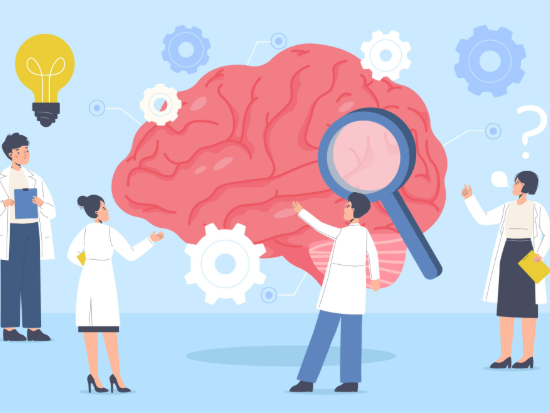 The human mind is a complex and enigmatic entity, the depths of which continue to elude complete understanding. In the pursuit of unraveling the mysteries of the mind, the UAB Department of Psychiatry and Behavioral Neurobiology stands at the forefront of groundbreaking research programs. These programs not only shed light on the intricacies of mental health but also hold the promise of transformative discoveries that could shape the future of psychiatry. The UAB Department of Psychiatry and Behavioral Neurobiology offers unique research programs that will advance our understanding of the human psyche.
The human mind is a complex and enigmatic entity, the depths of which continue to elude complete understanding. In the pursuit of unraveling the mysteries of the mind, the UAB Department of Psychiatry and Behavioral Neurobiology stands at the forefront of groundbreaking research programs. These programs not only shed light on the intricacies of mental health but also hold the promise of transformative discoveries that could shape the future of psychiatry. The UAB Department of Psychiatry and Behavioral Neurobiology offers unique research programs that will advance our understanding of the human psyche.
Addiction and substance abuse
Substance abuse and addiction are global health concerns with profound societal implications. The UAB Department of Psychiatry's Addiction Science program addresses these pressing issues by conducting innovative research aimed at understanding the mechanisms underlying addiction. The program explores how substances affect the brain, leading to addiction, and strives to develop effective treatments and interventions. Through this work, the program contributes to the broader effort to combat the opioid crisis and other substance-related challenges.
Anxiety, trauma, and stress-related disorders
Approximately 20 percent of U.S. adults grapple with anxiety disorders like generalized anxiety, panic, or social anxiety each year, causing substantial disruptions in their daily lives. A staggering 22 percent of these individuals experience severe impairments as a result. Additionally, trauma and stress-related disorders, primarily exemplified by posttraumatic stress disorder (PTSD), affect roughly 7 percent of the population during their lifetime, totaling 8 million cases in a single year. Our research faculty explores vital aspects of anxiety, trauma, and stress-related disorders, focusing on topics like the impact of psychosocial stress on brain development and behavior, minority stress consequences, and the efficacy of cognitive-behavioral treatments.
Depression and suicide
The UAB Department of Psychiatry and Behavioral Neurobiology conducts extensive research into mood disorders, including major depressive disorder and bipolar disorder. These mental illnesses are prevalent and disabling, with major depressive disorder affecting about 15% of individuals and bipolar disorder impacting 2-4% of the population. The department’s research focuses on understanding the neurobiology and treatment of these mood disorders. Through a combination of laboratory, clinical, and translational neuroscience projects, they aim to enhance our knowledge of effective treatments, ultimately leading to improved care for individuals suffering from these serious conditions.
Cardiometabolic disease and psychiatric disorders
This research explores the critical intersection between cardiometabolic diseases and psychiatric disorders, both of which pose significant public health challenges. These conditions often co-occur, with cardiometabolic diseases like obesity and diabetes being linked to psychiatric disorders such as depression and schizophrenia. Such comorbidities not only increase the burden of these illnesses but also create additional health disparities, particularly for vulnerable populations.
Pediatric behavioral health
This research focuses on understanding the prevalence and etiology of somatic symptom disorders in primary care pediatric settings. The program aims to explore the intricate relationship between physical health and psychological, social, and environmental factors. It prioritizes evaluating the effectiveness of psychological and behavioral treatments on physical health outcomes in pediatric patients. This pediatric research encompasses a wide range of pediatric disorders, including sleep problems, obesity, somatic symptom disorders, and functional neurological symptom disorders.
Schizophrenia and related disorders
The UAB Department of Psychiatry’s Schizophrenia and Related Disorders program is a pioneering research initiative dedicated to advancing our understanding and treatment of severe mental illnesses. Through cutting-edge research, innovative clinical trials, and collaborative partnerships, this program strives to unravel the complexities of schizophrenia and related disorders. By investigating genetic, neurobiological, and environmental factors, they aim to develop more effective therapies and interventions, ultimately improving the lives of individuals affected by these conditions. With a commitment to excellence in research and patient care, this program plays a crucial role in the quest for enhanced mental health outcomes and a brighter future for those living with severe psychiatric disorders.
Sleep and circadian regulation
This research is critically important because of its direct impact on human health. Sleep and circadian rhythms are fundamental to our well-being, affecting physical and mental health, cognition, and overall quality of life. In a world where sleep disorders and disruptions to circadian rhythms are increasingly prevalent, our research program seeks to uncover the underlying mechanisms and develop innovative treatments. By doing so, it addresses conditions like insomnia, sleep apnea, and shift work-related sleep disorders, ultimately improving public health and enhancing our understanding of human physiology.
Research programs within the UAB Department of Psychiatry and Behavioral Neurobiology are critical in the quest to understand and address mental health challenges. By conducting groundbreaking research in areas ranging from addiction science to anxiety and trauma, these programs offer the promise of transformative discoveries that can improve the lives of millions.